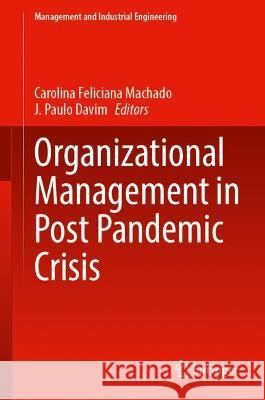Organizational Management in Post Pandemic Crisis » książka
topmenu
Organizational Management in Post Pandemic Crisis
ISBN-13: 9783030980511 / Angielski / Twarda / 2022 / 202 str.
Organizational Management in Post Pandemic Crisis
ISBN-13: 9783030980511 / Angielski / Twarda / 2022 / 202 str.
cena 805,10
(netto: 766,76 VAT: 5%)
Najniższa cena z 30 dni: 771,08
(netto: 766,76 VAT: 5%)
Najniższa cena z 30 dni: 771,08
Termin realizacji zamówienia:
ok. 16-18 dni roboczych.
ok. 16-18 dni roboczych.
Darmowa dostawa!
Kategorie:
Kategorie BISAC:
Wydawca:
Springer
Język:
Angielski
ISBN-13:
9783030980511
Rok wydania:
2022
Ilość stron:
202
Waga:
0.46 kg
Wymiary:
23.39 x 15.6 x 1.27
Oprawa:
Twarda
Wolumenów:
01
Dodatkowe informacje:
Wydanie ilustrowane











